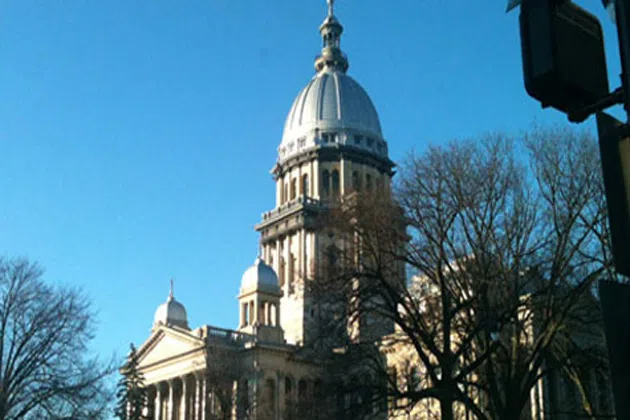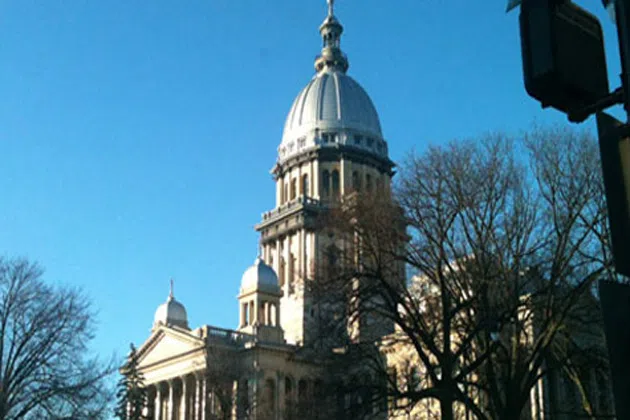
By Cole Lauterbach/Illinois Radio Network
SPRINGFIELD – Lower-income families in Illinois would have a better shot at deciding where their children go to school under a compromise education funding reform plan being discussed by legislative leaders behind closed doors Sunday evening.
While a deal is not final and some on both sides of the aisle are criticizing the plan, the compromise would allow for tax breaks on donations to private school scholarships. The taxpayer-funded scholarship money then could be distributed to low-income families who would prefer to send their child to a private school.
The concept is opposed by teachers’ unions but, if approved, would be a win for Gov. Bruce Rauner, an advocate for school choice. The Chicago Tribune reported that the school choice tax breaks would be capped at $75 million in tax-deferred sums of money and would sunset in five years.
In exchange for the school choice tax break, Rauner and Republicans would leave much of the rest of the Democrats’ school funding reform measure, Senate Bill 1, as is, before the governor’s amendatory veto. That includes hundreds of millions of dollars more in state funding for Chicago Public Schools’ pensions.
House Speaker Michael Madigan, D-Chicago, Senate President John Cullerton, D-Chicago, House Minority Leader Jim Durkin, R-Western Springs, and Senate Minority Leader Designee Bill Brady, R-Bloomington, announced Thursday that they had reached a tentative deal on an education funding reform proposal that would ensure public schools receive their state funding. While the leaders did not release details of the plan, information about the school choice tax credits and the CPS funding have leaked out since.
Brady said after another leaders’ meeting Sunday that the state saves money when kids go to private schools.
“Our state does rely on private schools to educate a number of children that if they aren’t able to do so, they will go back into the public school system,” he said.
The House will convene Monday beginning at 11 a.m. Monday to consider the bill.
As word of the compromise plan leaked out, unions decried both Democrats and Republicans for attempting to fund a school-choice program in Illinois.
“The voucher scheme is essentially a ransom payment that is being demanded in order to get fair funding for public school children statewide. It’s wrong,” said Kathi Griffin, president of the Illinois Education Association. “If we are really interested in helping children, the obvious thing to do is support existing schools.”
But Chicago Mayor Rahm Emanuel seemed to support the plan, saying that parents of CPS children can “breathe a little easier because the state of Illinois is going to live up to their responsibility to fund education equitably for all children.”
SB1, the Democrats’ original school funding reform formula, was vetoed by Rauner to remove what he called “a bailout of Chicago teachers’ pensions.” During negotiations in the spring, Democrats and many Republicans seemed to support the plan. But on the day of the vote, Madigan added an amendment that gives CPS more than $200 in additional state tax dollars annually to CPS for its failing pension system.
Complicating matters is another amendment Madigan added to a budget bill, also at the last minute, that says no funding can be released to any schools in Illinois unless a funding reform measure such as the one in SB1 is in place. Schools were supposed to receive their first state checks Sept. 10, but that didn’t happen because of Madigan’s amendment.
In a statement shortly after the announcement regarding an agreement, Rauner’s office was happy that a compromise had been reached.
“He thanks them for their leadership and looks forward to the coming days when the legislation is passed by both chambers,” the statement read.
But at a speech Friday in Marion, Rauner expressed displeasure with the bill, saying that Madigan had inserted “some bad things in there,” and that he was working on negotiating some of that money away from Chicago to be distributed to other schools.
“It’s not fair but it’s going to end up being a compromise,” he said, adding that he may push for a different bill than SB1. “I’m going to try to fix the problems with it in subsequent legislation.”
Durkin said Sunday that Rauner was supportive of the deal.





